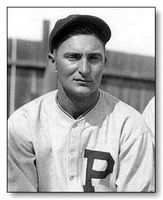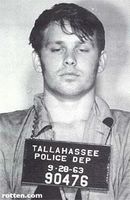KKKontrite
The Ku Klux Klan origins of U.S. Sen. Robert Byrd are nothing new, of course. The West Virginia Democrat has been apologizing for his past since the 1950s. Still, The Washington Post's Eric Pianin points out that it is a bit troubling that the senator's latest autobiography, Robert C. Byrd: Child of the Appalachian Coalfields, glosses over his rather involved past with the KKK.
"In it, Byrd says he viewed the Klan as a useful platform from which to launch his political career. He described it essentially as a fraternal group of elites -- doctors, lawyers, clergy, judges and other 'upstanding people' who at no time engaged in or preached violence against blacks, Jews or Catholics, who historically were targets of the Klan."
Um, OK, we'll just call bullshit on that one. Surely, hoods and white sheets aren't de rigueur at the West Virginia country clubs.
At any rate, Pianin notes that the 87-year-old Byrd insists the memoir is not intended to provide "finite details" of his former life as a Klan organizer. That might be just as well, the Post points out, since the book fails to acknowledge that Byrd spent most of the 1940s as a KKK organizer and advocate.
"By the time Byrd began organizing for the Klan during World War II, the organization had largely morphed into a money-making fraternal organization that was virulently anti-black, anti-Catholic and anti-Semitic," Pianin writes.
He continues:
"Byrd asserts that his Klan chapter never engaged in or preached violence, "nor did we conduct any parades or marches or other public demonstrations" -- other than one time delivering a wreath of flowers in the shape of a cross to the home of a member who had been killed in a pistol duel.
" Byrd wrote that he continued ... recruiting for the Klan until early 1943, when he and his family left Crab Orchard for a welding job in a Baltimore shipyard. Returning to West Virginia after World War II ended in 1945, he launched his political career, but not before writing another letter, to one of the Senate's most notorious segregationists, Theodore Bilbo (D-Miss.), complaining about the Truman administration's efforts to integrate the military.
"Byrd said in the Dec. 11, 1945, letter -- which would not become public for 42 more years with the publication of a book on blacks in the military during World War II by author Graham Smith -- that he would never fight in the armed forces 'with a Negro by my side.' Byrd added that, 'Rather I should die a thousand times, and see old Glory trampled in the dirt never to rise again, than to see this beloved land of ours become degraded by race mongrels.' "
OK, so it is true that in the decades since, Byrd has apologized numerous times for his involvement with the Klan. While he wasn't exactly the most civil rights-minded federal lawmaker during the 1960s -- he opposed the Civil Rights Act and voted against confirming Thurgood Marshall to the U.S. Supreme Court -- it is probably fair to say Byrd's political transformation has been considerable. And if nothing else, the guy deserves credit for his eloquent opposition to the Iraq War.
But how earnest is renunciation of the past when such contrition is steeped in a whitewash? Even now, Robert Byrd seems unwilling to fully admit his ugly history. This is a particularly thorny moment for our nation. It is 2005 and we are still atoning for the horrific sins of yesteryear. The 1955 murder of Emmett Till has been reopened amid compelling evidence that the slaying involved a larger conspiracy. Edgar Ray Killen is on trial for the 1964 killings of three civil rights workers in Philadelphia, Mississippi.
People and viewpoints can and do change with the passage of time. Indeed, the politicians you need to watch out for are those seemingly blessed with unwavering certitude. For the sake of his legacy if nothing else, Robert Byrd should come clean.























0 Comments:
Post a Comment
<< Home